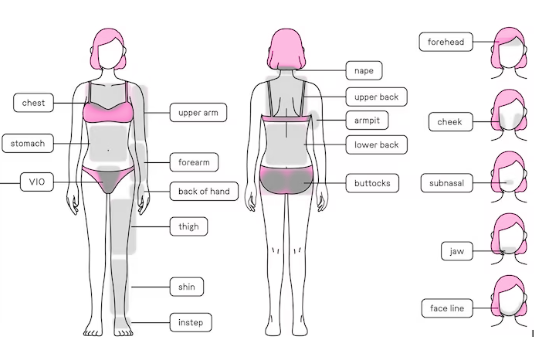What is a laser?
Lasers (light amplification by stimulated radiation) work by emitting a specific wavelength of high energy light which, when focused on a specific skin condition, generates heat and destroys diseased cells.There are several types of laser, which differ in the medium used to produce the laser beam. When a particular wavelength of light passes through, this medium amplifies it.
What is a carbon dioxide laser?
The active laser medium is a mixture of 3 gases consisting of 10-20% carbon dioxide, 10-20% nitrogen and the remainder is helium.The carbon dioxide laser produces a specific wavelength of light in the infrared spectrum (10,600nm).
How does a carbon dioxide laser work?
Carbon dioxide laser beams penetrate the upper layers of the skin down to the dermis. It creates tiny microscopic areas of thermal damage that stimulate new collagen production and replace the damaged skin surface with new epidermal cells.
Traditional ablative carbon dioxide laser resurfacing has been largely replaced by fractional carbon dioxide lasers, which provide excellent results with fewer complications.
What are carbon dioxide lasers used for?
The US Food and Drug Administration (FDA) has approved a number of carbon dioxide laser devices for the treatment of skin conditions.
The following skin conditions can be treated with carbon dioxide laser beams
Raised Moles
Moles
Viral Warts
Rhinophyma
Acne scars
Keloid and hypertrophic scars
Skin Aging
Facial Lines and wrinkles
Stretch Marks
Actinic Keratosis
Uneven Pigmentation (brown spots and freckles, lentigines, melasma)
Pearly Penile papules
Patient selection and contraindications
Contraindications
Carbon dioxide laser treatment may be inappropriate in the following circumstances
- Patients with unrealistic expectations, such as complete removal of wrinkles or scars.
- Patients with a tendency to form keloids and hypertrophic scars.
- People who have taken isotretinoin within the last 6 months.
- Active cutaneous bacterial skin infections or herpes simplex (cold sores) in the area to be treated
- Prior exposure to ionising radiation in the area to be treated
- Connective tissue disorders
- History of deep chemical peel or dermabrasion
- Fitzpatrick skin phototype 5 or 6 (darkly pigmented skin)
- Human immunodeficiency virus (HIV) or hepatitis C infection
Postoperative care
To reduce the risk of infection, patients may be prescribed
- Antiviral prophylaxis with acyclovir or equivalent
- Antibiotics
- Antiseptic facial wash
What are the side effects of carbon dioxide laser resurfacing?
Side effects of carbon dioxide laser resurfacing may include
Minor side effects
Milia
Acne
Perioral dermatitis
Rosacea
Contact dermatitis
Moderate side effects
Localised bacterial skin infections, herpes simplex or candida
Persistent erythema
Transient post-inflammatory hyperpigmentation
Delayed hypopigmentation (pale patches)
Serious side effects
Fibrosis (scarring)
Hypertrophic scarring
Disseminated herpes simplex or staphylococcal skin infections
Ectropion (permanently drooping eyelid)
Benefits of carbon dioxide laser treatment
For selected skin conditions, carbon dioxide laser treatment offers
Highly precise, tissue selective treatment
Low cost of consumables
Less invasive than dermabrasion and chemical peels
Short downtime – recovery time is approximately 2 weeks
Carbon dioxide versus Erbium laser
- Erbium:YAG laser resurfacing is used to remove superficial and moderate deep lines and wrinkles on the face, hands, neck or chest.
- Erbium:YAG laser resurfacing has a faster recovery time and fewer side effects than carbon dioxide laser, but is less effective for deeper lines and wrinkles.





